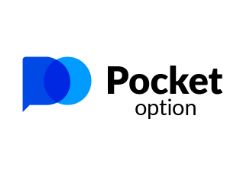Binary Options vs. Options: What’s The Difference?
Standard or vanilla options and binary options are financial instruments which both allow you to speculate on asset price movements, but the way that trading works with each of these derivatives is different.
With vanilla options, traders have the right to buy or sell an asset at a specified price on or before a certain date, and gain profit or incur losses depending on that asset’s price movement, allowing for unlimited profit and limited losses.
Binary options, on the other hand, only allow you to predict an asset’s price movement during a fixed time limit, with fixed payouts in case of a correct call, and a complete loss of the initial investment if you are wrong, making them a more high-risk, high-reward option between the two.
Main Differences Between Binary Options and Options
Featured Binary Options Broker
Pocket Option is a beginner-friendly binary options broker with lucrative payout bonuses and industry-low minimum deposit requirements. It is also a proven and reliable company with over a decade of experience, making it a perfect choice for new and experienced traders.
Which Instrument Suits Beginners Better?
As the comparison data above suggest, binary options are considered more beginner-friendly than standard options, mainly due to the level of complexity involved in trading standard options.
Binary options trading is much simpler, and easier to get into, but they do come with higher risk and a lower profit potential.
This is why it’s crucial to study the most common trading strategies for binary options, and analyze the assets whose movements you want to predict, because the quick-natured approach to trading here can quickly lead to mounting losses and rash emotional decisions that will definitely cost you in the long run.
Conversely, standard options allow you to manage risk better, but are considered more complex and require a greater understanding of the market and analytical tools for long-term success.
The barrier to entry is also higher, and there are even different tiers of difficulty for trading here, depending on the complexity level, making standard options much more intimidating for someone who’s just starting to learn about the ins and outs of online trading.
Risk Levels and Legality
Regardless if you are a beginner or experienced trader, the main things that you should always keep in mind when choosing between binary and standard options trading are risk levels and the legality of trading in your country or state.
Binary options trading platforms often do not accept customers from numerous countries, while standard options trading, more regulated and transparent, is readily available in countries like the United States.
This is why it’s crucial for binary options traders to be diligent and only trade through trusted and proven platforms, as the potential for scams and other illegal practices is statistically higher than with options trading platforms.
Binary options also come with higher risk levels, as you usually lose your entire investment in case of a wrong prediction.
This is amplified by the fact that these instruments generally have very short expiration dates (from 5 seconds and upwards), while vanilla options, for example, allow you the potential of making a margin call and deposit additional funds if your chosen asset’s price falls below a certain threshold.
If you do make a deposit, your options trading broker will not require you to sell the asset as soon as you fall below that maintenance requirement, while any wrong prediction on binary options automatically loses you the original investment.
I have always thought of myself as a writer, but I began my career as a data operator with a large fintech firm. This position proved invaluable for learning how banks and other financial institutions operate. Daily correspondence with banking experts gave me insight into the systems and policies that power the economy. When I got the chance to translate my experience into words, I gladly joined the smart, enthusiastic Fortunly team.






